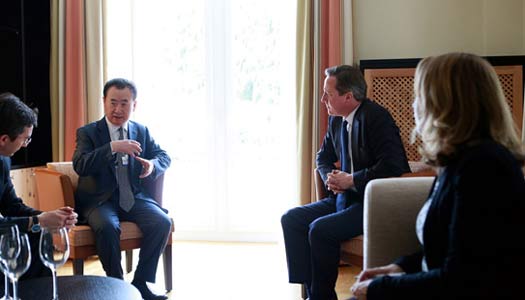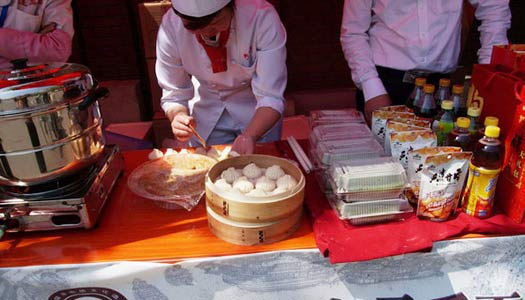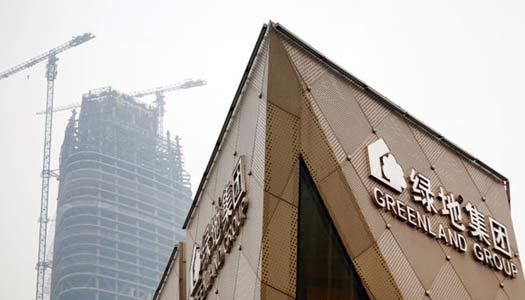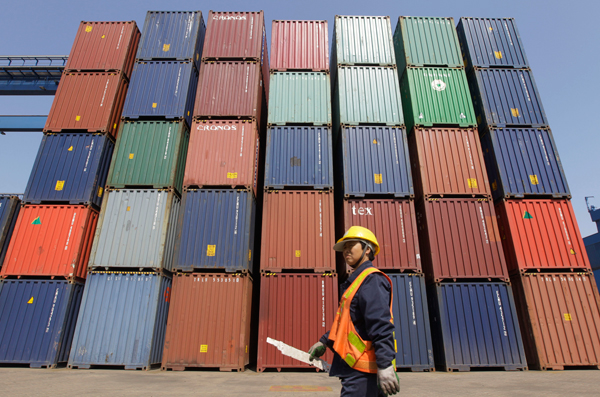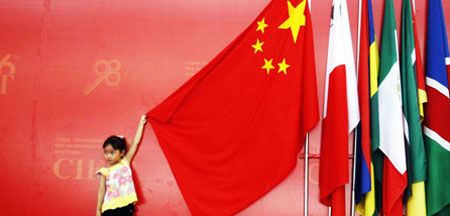Looking abroad for a new home
Updated: 2013-04-08 07:57
|
 A Chinese woman watching a presentation of an overseas project at a cocktail party in central London. It costs buyers an average of 20 years to get their investment back from rental incomes in London. The biggest advantage about having a property investment in the UK is that there is no capital gains tax for sales by the non-domiciled. In contrast, China has just introduced a new policy of levying a 20 percent income tax on home sales. [Photo/China Daily]
|
|
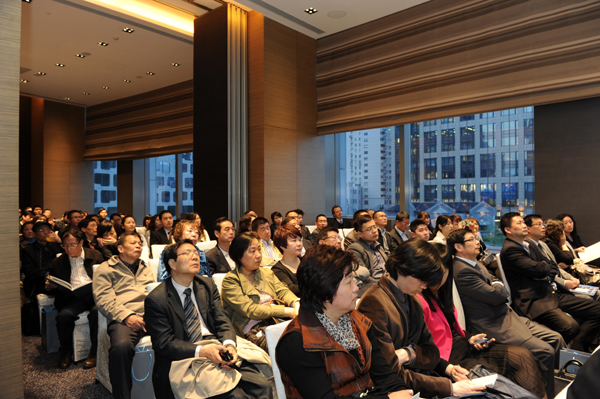 An overseas project presentation in Shanghai attracted many potential homebuyers. The Chinese property market is experiencing a new round of tightening. The central government announced on March 1 a levy of a 20 percent tax on gains on pre-owned house sales. [Photo/China Daily]
|

Chinese lured by comparatively cheaper houses elsewhere, report Wang Ying and Hu Yuanyuan
Properties in the former US industrial city Detroit started to fall to as low as $100, attracting Chinese investors who have found their investments in the Chinese property market becoming harder under the central government's tightening policies.
As real estate hits rock bottom in Detroit, Chinese investors are planning to purchase properties there, the People's Daily reported.
There are more than a dozen properties priced lower than $100, with some extreme cases on offer for $1.
Some Chinese investors are linking up to buy several properties there. Given that some wealthy Chinese are happy to spend $1,100 on a single pair of designer shoes, the opportunity of buying two Detroit properties with change to spare is not being ignored, the China Central Television reported.
The Chinese property market is experiencing a new round of tightening. The central government announced on March 1 a levy of a 20 percent tax on gains on pre-owned house sales.
Experts suggest homebuyers should be cautious before undertaking an overseas shopping spree because there is "no such thing as a free lunch".
"For instance, Detroit is extremely cold in winter with the lowest temperature reaching minus 30 degrees Celsius and the broken economy means there is a high rate of unemployment and crime," said Tian Xue, an associate director and head of international project marketing at Knight Frank China.
It may be true that some Chinese buyers are zeroing in on the Detroit property market but James Macdonald, head of Savills research team in China, is skeptical about the magnitude of the trend.
"Typically, when property buyers go overseas, they prefer key markets such as New York, Los Angeles, San Francisco, Miami, Seattle, Portland, San Diego and Boston. These markets are more expensive but comparatively stable and they have diversified populations. In some cases these markets have a large Chinese population and better education systems," said Macdonald.
Tian said up to 80 percent of people looking for overseas property investments want to use them for themselves. These people are either buying properties for emigration purposes or for their children's future educational use.
An extreme example of that came in a CCTV report that revealed a Chinese mother buying a $6.5 million apartment in Manhattan, New York's most expensive district, ahead of her 2-year-old daughter's future university life.
It is very unlikely that nouveau riche Chinese will buy properties in a city that has an unstable economy and social environment just because they are cheap, such as Detroit in the United States or on the island of Cyprus in the European Union, said analysts.
Maureen Yeo, associate director of international project marketing in Knight Frank's Beijing office, said there was a surge in pure investment-oriented purchases among the Chinese.
"Before, most Chinese who bought overseas properties did so, especially in the UK, the US, Canada and Australia, for their children's education or to emigrate to. But after the central government further tightened real estate policies, more are tending to diversify their investment portfolios, given the rising policy risks," said Yeo
The new policy of levying a 20 percent income tax on home sales is not actually new in China. "It was introduced as early as 2010 but people selling their home have had the option of paying a 20 percent capital gain from the transaction or paying a 1 to 2 percent tax on the total property value, according to Chen Shin Ling, general manager of Taiwan-based Yungching Real Estate Agency in Shanghai.
"While the 20 percent tax will not directly lead to individuals buying properties overseas, a tightly controlled and heavily taxed market is less attractive to buyers than a more open, more lightly taxed market. So the combination of all the regulations designed to cool the market over the last five years will have encouraged buyers to look at overseas markets," said Macdonald.
According to him, one of the more important considerations is the prospects for some of these markets, which are relatively cheap by historical standards and also cheap when viewed in yuan terms given the appreciation of the Chinese currency over the last eight years
- BYD exports three electric cars to Thailand
- Grid gets first jolt of residential solar power
- US now largest buyer of China's exports
- China's outbound M&As on the rise
- Tobacco control may entail price, tax rises
- Quanzhou becomes pilot financial reform zone
- New automobiles shine at Geneva Motor Show
- World's longest high-speed rail 'on track'
- Jiugui Liquor involved in plasticizer scandal again
- Accident reignites school bus safety concerns
- China to revise labor law
- Trademark registration under scrutiny
- Dinner ban takes toll on liquor firms
- CIC tables bid for London's Chiswick Park
- Property buyers eye overseas market
- Call for law to protect personal information
- China to cut train ticket prices
- Christmas business
- Solar industry to get jolt from new policies
- KFC chicken under spotlight




